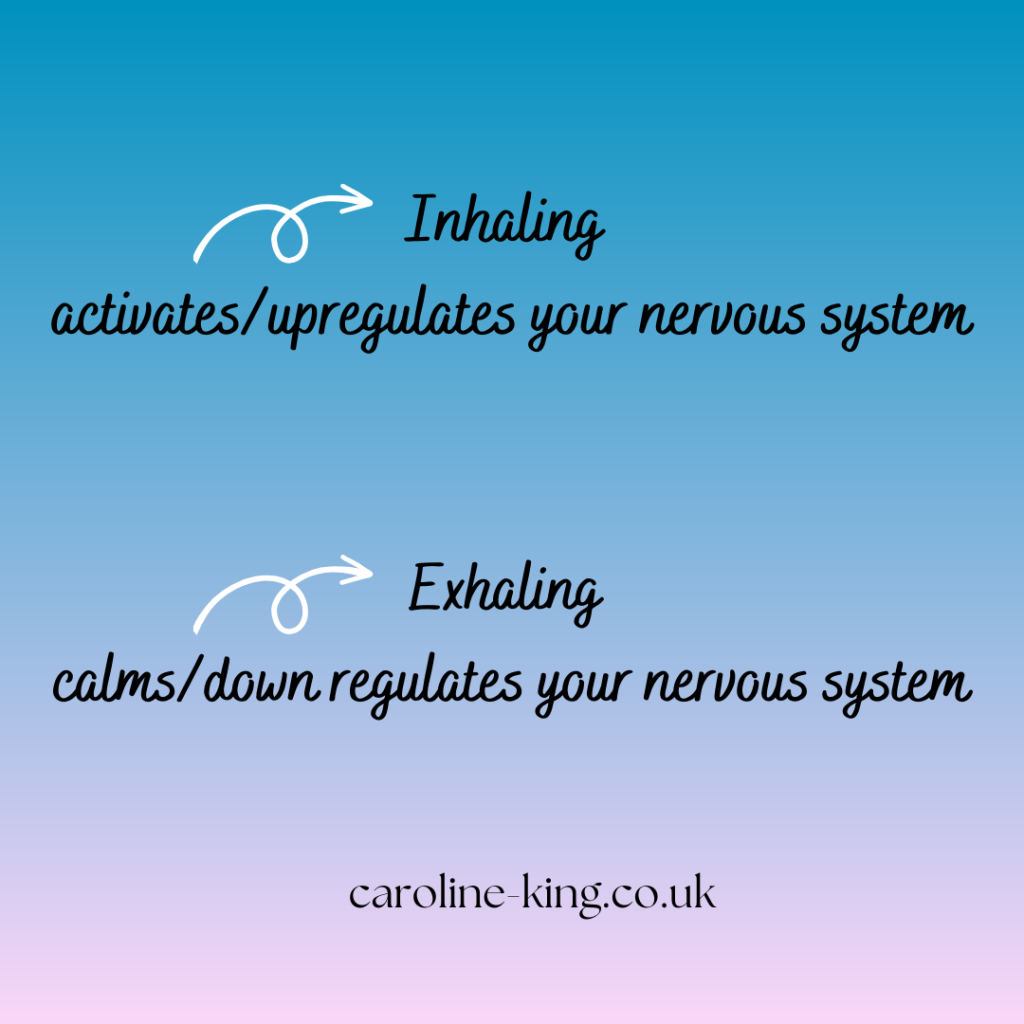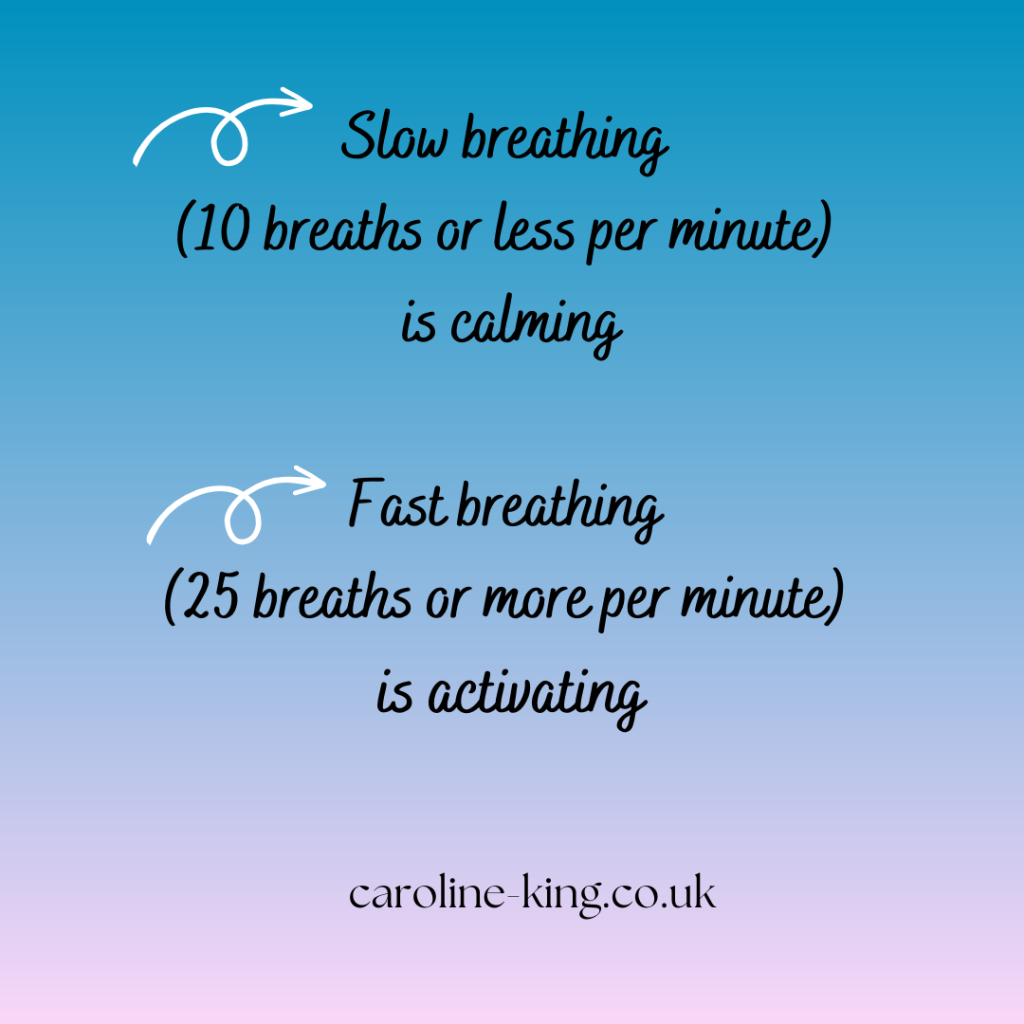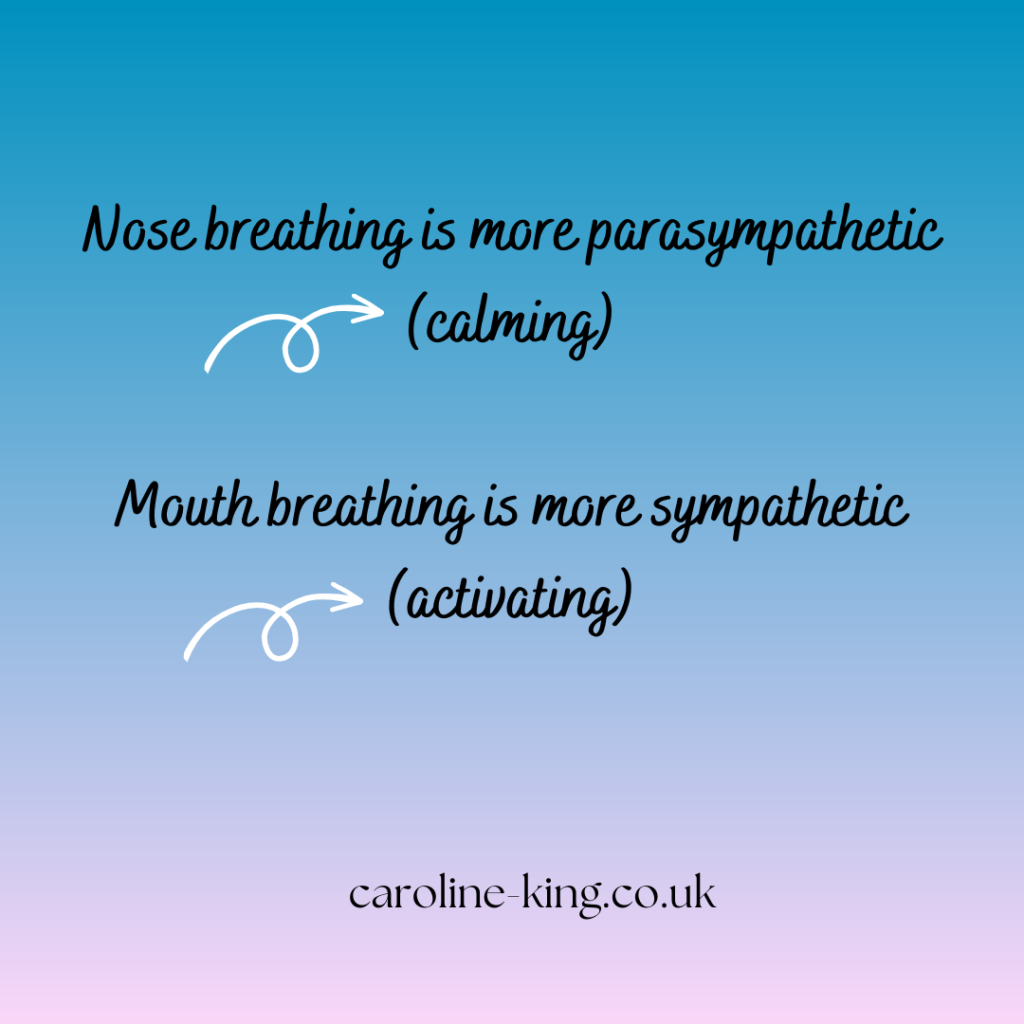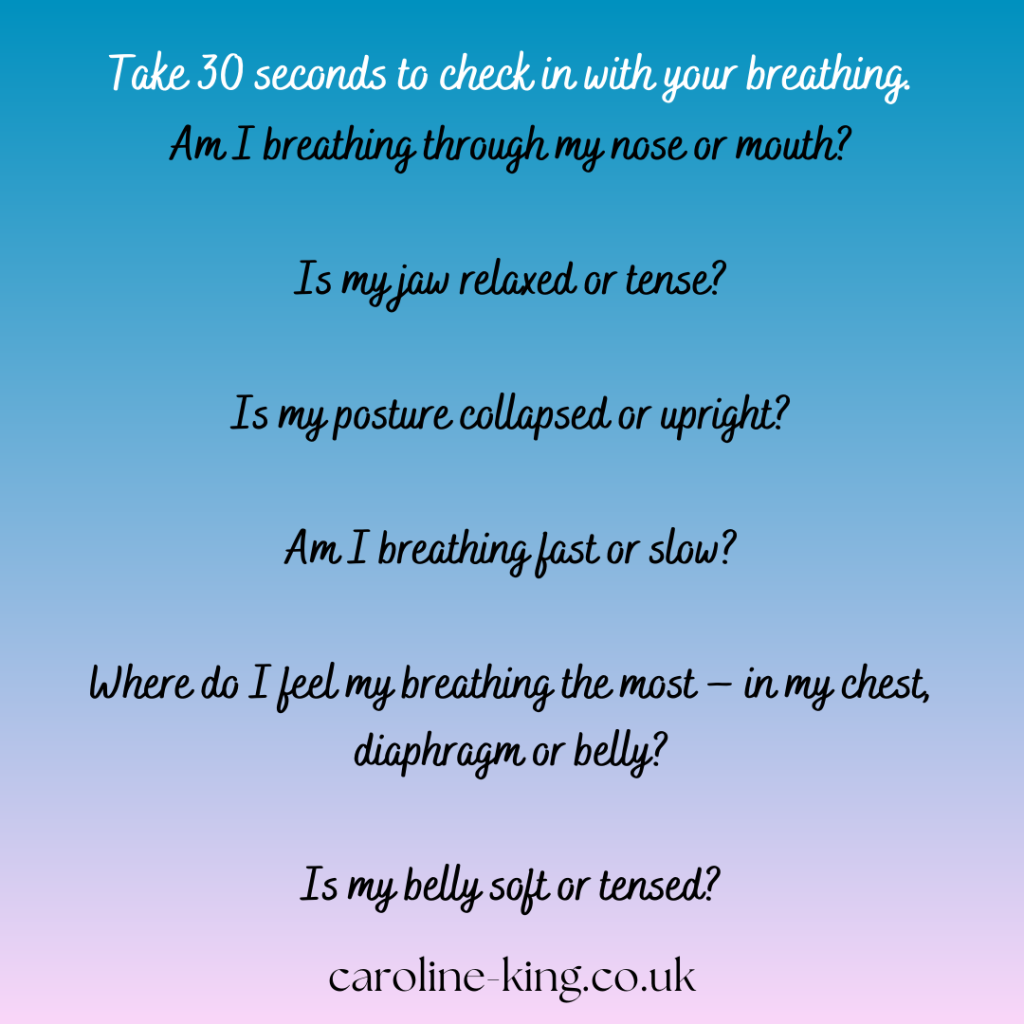
Trauma is physiological. It is a highly activated incomplete biological response (fight, flight, freeze). Feeling anxious signals that your nervous system is lacking safety and your body tenses up and constricts. This impacts your nervous system, fascia, muscles and tissues.
Constriction in the body tightens your respiratory muscles and this affects the way you breathe. Such as: shallow breathing into the chest, a contracted and tight thoracic diaphragm due to feeling fearful, a collapsed posture that impedes diaphragmatic breathing, frequent breath-holding, forcing the out breath, or faster breathing patterns.
There are lots of different breathwork techniques to choose from, and the one you probably hear about the most is when people tell you to take a deep breath to calm down, but this isn’t suitable when your nervous system is traumatised. Deep breaths are actually activating, so they work better for upregulating your nervous system when you feel flat and shutdown. It’s so important to remember that each breathwork practice has a different effect on your nervous system.
Dysfunctional breathing such as over breathing can create a stress response instead of a calming response and if your system is constantly in a stress response this is not healthy for your body and mind.
So how you breathe really impacts your nervous system and knowing what you can do to regulate your nervous system state empowers you to be able to take control of your body, especially in those moment when you feel anxious.
To safely regulate your nervous system, it is important to understand and discern the correct breathwork practices that your nervous system will require at different times. Not every technique is suitable for everyone. Some breathing practices make people feel light-headed or more anxious. You don’t want to add more stress by adrenalising your nervous system when it needs more regulation and calming. Learning to listen to your body is so important.
Check in with your body:
How am I feeling right now?
Do I feel more wired or more tired?

Breathwork for nervous system regulation
When you do breathing practices that lengthen your exhale, you are accentuating the relaxation response in your nervous system.
When you do breathing practices that focus on deepening your inhales, you are accentuating the activation (fight/flight) response in your nervous system.

What this means is that slower breathwork practices, where you exhale for longer, down regulate (calm) your nervous system.
Fast breathing practices, where you inhale more, up-regulate (activate) your nervous system and this will intentionally trigger a stress response in your body.

Breathing practices through the nose, together with lengthened exhalations are very calming. This is a better option to use when you are feeling anxious. But take your time to gradually get there by first breathing in and out evenly instead of going straight into longer exhalations.
Breathing practices through the mouth, together with big inhalations are very activating. This is only suitable when your nervous system has gone very flat and into a dorsal vagal shutdown state. You’ll only need to do a few to begin to feel the results.
We can support our trauma healing with daily functional breathwork practices.
Create awareness of your breathing patterns by doing regular quick breath check ins anywhere and anytime. Do this especially when you feel stressed or anxious. Try to make your in and out breath even in length.

We can only change what we are aware of. Awareness is the first step to changing patterns that keep us tense and stuck in trauma.
Somatic work is teaching you to be sensationally aware of the unconscious. Breathing is considered to be the bridge between the conscious and the unconscious.
Nervous system recovery, trauma integration and reprogramming your nervous system takes time, but you can heal.
A healthy, functional breathing pattern supports a more regulated nervous system which equals a calmer mind and a more relaxed body.
This blog is just a brief outline of body-based, polyvagal psychotherapy. If you are looking for some more individualised guidance or someone who really understands the mind-body connection, I would be delighted to provide confidential 1:1 sessions to overcome your trauma symptoms.
Visit www.caroline-king.co.uk

